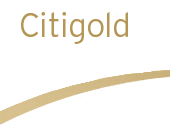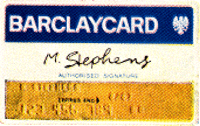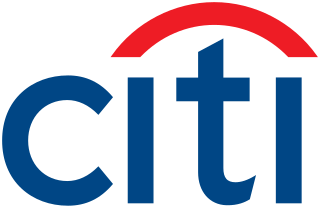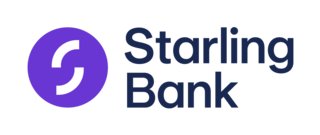
Citigroup Inc. or Citi is an American multinational investment bank and financial services corporation incorporated in Delaware and headquartered in New York City. The company was formed by the merger of Citicorp, the bank holding company for Citibank, and Travelers in 1998; Travelers was spun off from the company in 2002.

Citibank, N.A. is the primary U.S. banking subsidiary of financial services multinational Citigroup. Citibank was founded in 1812 as the City Bank of New York, and later became First National City Bank of New York. The bank has 2,649 branches in 19 countries, including 723 branches in the United States and 1,494 branches in Mexico operated by its subsidiary Banamex. The U.S. branches are concentrated in six metropolitan areas: New York, Chicago, Los Angeles, San Francisco, Washington, D.C., and Miami.

Financial services are economic services tied to finance provided by financial institutions. Financial services encompass a broad range of service sector activities, especially as concerns financial management and consumer finance.

Barclaycard is a brand for credit cards of Barclays PLC. As of 2010, Barclays had over ten million customers in the United Kingdom.

Citibank Canada, operating as Citi Canada, is the Canadian subsidiary of the American multinational financial services corporation Citigroup. Citi Canada is headquartered in Toronto, Ontario, with offices in Calgary, London, Ontario, Montreal, Mississauga, and Vancouver.
Tesco Personal Finance plc, trading as Tesco Bank, is a British retail bank which was formed in July 1997. The bank was formed as part of a 50:50 joint venture between The Royal Bank of Scotland and Tesco, the largest supermarket in the United Kingdom, employing 2,800 people.
Payment protection insurance (PPI), also known as credit insurance, credit protection insurance, or loan repayment insurance, is an insurance product that enables consumers to ensure repayment of credit if the borrower dies, becomes ill or disabled, loses a job, or faces other circumstances that may prevent them from earning income to service the debt. It is not to be confused with income protection insurance, which is not specific to a debt but covers any income. PPI was widely sold by banks and other credit providers as an add-on to the loan or overdraft product.
Merchant services is a broad category of financial services intended for use by businesses. In its most specific use, it usually refers to merchant processing services that enables a business to accept a transaction payment through a secure (encrypted) channel using the customer's credit card or debit card or NFC/RFID enabled device. More generally, the term may include:

Virgin Money is a banking and financial services brand operating in the United Kingdom as a trading name of Clydesdale Bank plc.

Vanquis Banking Group, formerly Provident Financial plc, is a British bank headquartered in Bradford, England which specialises in credit cards, loans and consumer vehicle finance. It primarily services customers with a sub-prime credit history who have been declined for credit from mainstream lenders. It also offers fixed-rate and notice savings accounts under the trading name Vanquis Savings. It is listed on the London Stock Exchange.
Discover Financial Services is an American financial services company that owns and operates Discover Bank, an online bank that offers checking and savings accounts, personal loans, home equity loans, student loans and credit cards. It also owns and operates the Discover and Pulse networks, and owns Diners Club International. Discover Card is the third largest credit card brand in the United States, when measured by cards in force, with nearly 50 million cardholders. Discover is currently headquartered in the Chicago suburb of Riverwoods, Illinois.

Citibank Berhad is a licensed commercial bank operating in Malaysia with its headquarters in Jalan Ampang, Kuala Lumpur. Citibank Berhad operates as a subsidiary of Citigroup Holding (Singapore) Private Limited, commencing its banking operations in Malaysia since 1959. Citibank Berhad was locally incorporated in 1994. Citibank Berhad has 11 branches spread across Kuala Lumpur, Selangor, Penang, Kuantan, Malacca and Johor, offering a wide range of banking and financial services including retail banking, institutional banking, and investment products and services.
Citibank Indonesia was the division of Citigroup that operated in Indonesia. In November 2023, the division was sold to United Overseas Bank.

Wachovia was a diversified financial services company based in Charlotte, North Carolina. Before its acquisition by Wells Fargo and Company in 2008, Wachovia was the fourth-largest bank holding company in the United States, based on total assets. Wachovia provided a broad range of banking, asset management, wealth management, and corporate and investment banking products and services. At its height, it was one of the largest providers of financial services in the United States, operating financial centers in 21 states and Washington, D.C., with locations from Connecticut to Florida and west to California. Wachovia provided global services through more than 40 offices around the world.

Santander UK plc is a British bank, wholly owned by the Spanish Santander Group. Santander UK plc manages its affairs autonomously, with its own local management team, responsible solely for its performance.
Misselling is the deliberate, reckless, or negligent sale of products or services in circumstances where the contract is either misrepresented, or the product or service is unsuitable for the customer's needs. For example, selling life insurance to someone who has no dependents is regarded as misselling. There is no legal definition of "misselling" in the UK

TSB Bank plc is a British retail and commercial bank based in Edinburgh, Scotland. It has been a subsidiary of Sabadell Group since 2015.

Starling Bank is a British bank, occasionally referred to as a digital challenger bank or neobank, providing current and business bank accounts in the United Kingdom. Starling Bank is a licensed and regulated bank, founded by former Allied Irish Banks COO, Anne Boden, in January 2014. Since its founding, it has received over £500M of funding.
Marks & Spencer Financial Services plc, trading as M&S Bank, is a retail bank operating in the United Kingdom. The company was founded in 1985 as St Michael Financial Services as the financial services division of Marks & Spencer and adopted its current name in 2012.
Tandem Money is a company that owns Tandem Bank, one of the UK's original challenger banks. Tandem Bank is a digital bank with a mobile app, and no branches.













